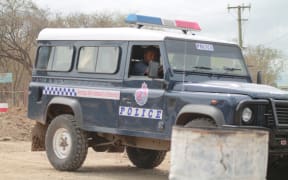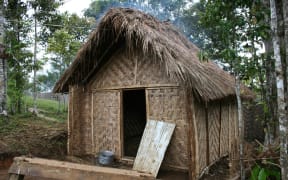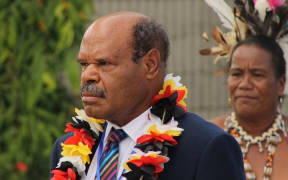Analysis - Two high-profile attacks this month have highlighted how Papua New Guinea's problem with belief in sorcery is spiralling out of control.
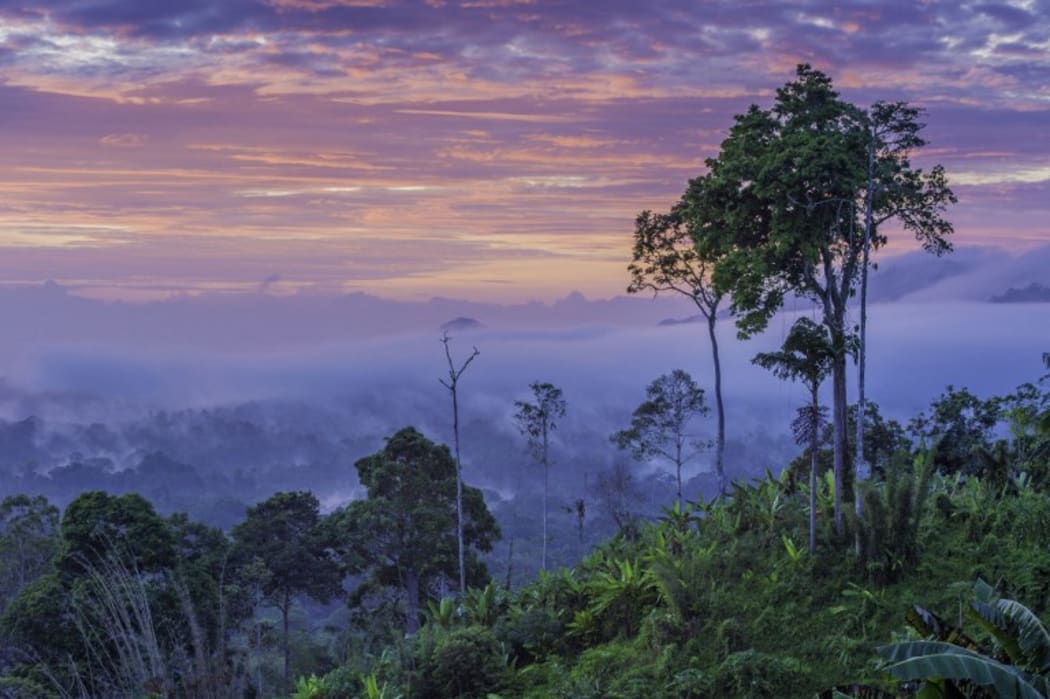
Papua New Guinea. Photo: DOZIER Marc / hemis.fr
The first attack, on the country's Chief Justice in his Highlands province, came somewhat out of the blue. But the second came as no surprise.
Villagers in the capital Port Moresby this week attacked a man who they claimed had used sorcery to cause the death of the country's late rugby league star Kato Ottio.

Kato Ottio represented PNG in Rugby League and Volleyball Photo: RNZ Pacific / Melvin Levongo
The 23-year-old athlete died unexpectedly in hospital earlier this month after collapsing during a training session. Amid a mass outpouring of grief over the death, and with results from a post mortem still pending, speculation over the reason for his death has run rife among PNG's public.
It was only a matter of time before people put it down to 'sanguma', or sorcery.
Although defining sorcery in the PNG context is complicated, it is broadly believed to operate through a person who can wield a supernatural power to perform mostly malevolent and harmful acts on other people.
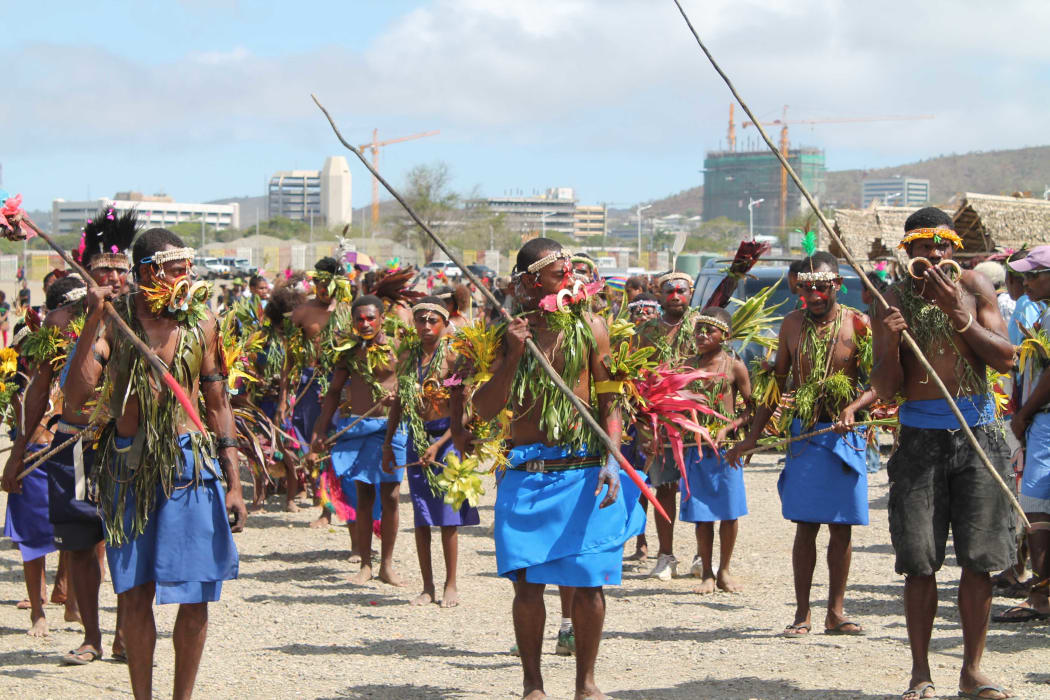
PNG's traditioal society has undergone rapid change in recent decades Photo: RNZ / Johnny Blades
Traditional roots
Belief in sorcery is relatively widespread in PNG. It appears to have roots in the traditional Melanesian preoccupation with the workings of spirits. But it's also described as having morphed into a new phenomenon in recent years as PNG's various ethnic groups began migrating to other parts of the country and their cultures mixed.
The rapid change that PNG's traditional society has undergone in the last several decades has caused great upheaval for many Papua New Guineans who sometimes resort to subverting cultural norms as they try and navigate the confusion of change, or as they look to apportion blame for other bad things that cause resentment.
According to people who work to protect victims of sorcery-related allegations, the attacks and killings are increasing, and the mindset that drives this is worsening.
This might account for an appalling attack in November by villagers in Enga province who turned on a six year-old girl they accused of using sorcery.
She was eventually rescued by a small team including an American missionary who flew her to Port Moresby to receive medical treatment for wounds and burns sustained all over her body from heated bush knives.
The girl's mother had been burned alive in a public market in PNG's third biggest city of Mt Hagen in 2013 after being accused of using sorcery. There was global outrage over the case of Kepari Leniata who had been stripped naked, tortured, bound, doused in petrol and set on fire on a rubbish heap in front of hundreds of people.
Outsiders naturally wonder how these dark age witch-hunting practices could still be occurring in the 21st century. But in PNG, trying to prove or disprove that sorcery occurs leads one to a vexing dead-end of logic.
In the sense that it cannot be verified scientifically, sorcery is not real. Yet in PNG it has long been recognised as an actual thing that exists, therefore sorcery-related accusations have currency.
What's the legal position?
Until shortly after the Leniata killing, sorcery was recognised as an actual thing in PNG law.
Fortunately, the 1971 Sorcery Act, was repealed. But the sorcery mindset is entrenched.
There are countless stories on offer from even educated PNG people who claim to have witnessed a death or injury that could not be explained other than being attributed to an act of sorcery. It seems that more often than not, it's a woman who is accused of using sorcery.
These supernatural acts are difficult to prove in law, but it seems they also cannot be disproved for a community at large who is willing to accept that a so-called witch can induce a psychosomatic illness through sorcery.
A group of people in Madang were this month convicted of murder for sorcery-related killings of seven people in 2014. But this was a rare instance. The country's justice sector generally struggles to hold those behind the attacks to account, due to lack of witnesses or evidence and the way that communities close ranks, unwilling to give up the perpetrators.
At present, PNG's police can do very little to stop the attacks in the country's many remote parts. Police are all too often outnumbered and out-gunned.
The police commission has launched a national taskforce to combat sorcery-related attacks but given its under-resourced state few people expect the force to make inroads into the problem.
Furthermore, the government has spoken strongly about being committed to stamping the pattern out. Education is seen as the key to countering the problem, yet changing mindsets about sorcery is a gargantuan challenge, particularly when it means you come up against the mob.
Social media
These days the mob has a platform: social media.
As PNG's active Facebook community was dissecting the death of Kato Ottio, there was a proliferation of comments giving breath to the possibility that sorcery was to blame. It was as if people steadily talked themselves into advocating for the suspect's death.
As it happened, police intervened when the suspect was being attacked over the league player's death. They were themselves attacked for getting in the way, but eventually took him off to safety.
In an interesting turn, they are holding the man in custody on a separate charge, although one wonders if this may fuel sorcery allegations. The police commander has said the local community has been told that there is no ground to the sorcery claims.
Meanwhile, the physical wounds of Kepara Leniata's daughter are reported to have healed well since November's attack. She is currently in the care of state welfare services and is to be offered protection, under a new identity, for the rest of her life in a place far away from PNG's Highlands.
But the inter-generational horror of what the community has done to her family is the hidden face of this crisis across PNG.
With such a problem on its hands, it seems almost perverted that PNG is to host the APEC leaders summit this year.
It will be the biggest event PNG has ever held, with the government arguing it can open doors for global trade and investment. However it's going to be a costly event which Australia and New Zealand are going to have to stump up for.
Many people in PNG argue that the hundreds of millions of dollars spent on APEC would be better spent directly on the people. There are few more pressing issues for PNG to resolve than the surge of sorcery-related attacks.
